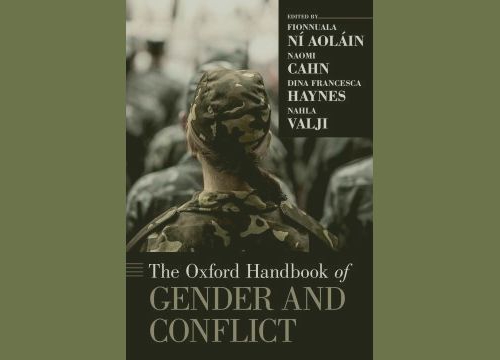Book Launch: ‘The Oxford Handbook of Gender and Conflict’
Event
This event marks the launch of ‘The Oxford Handbook of Gender and Conflict’ (OUP, 2018), edited by Fionnuala Ní Aoláin, Naomi Cahn, Dina Francesca Haynes, and Nahla Valji.
The book focuses on the multidimensionality of gender in conflict and provides a substantial set of case studies from across the globe on conflict and gender. The volume also assesses the role of gender in violent conflicts, with an emphasis on women's experiences.
Fionnuala Ní Aoláin, one of the leading scholars in the fields of international human rights law, national security law, transitional justice and feminist legal theory, and current UN Special Rapporteur on the promotion and protection of human rights and fundamental freedoms while countering terrorism, will present this new book and discuss the issue of gender in conflict.
Welcome
- Frank Haldemann and Thomas Unger, Co-Directors of the Master of Advanced Studies in Transitional Justice, Human Rights and the Rule of Law at the Geneva Academy
Speaker
- Fionnuala Ní Aoláin, UN Special Rapporteur on the promotion and protection of human rights and fundamental freedoms while countering terrorism, Dorsey and Whitney Chair in Law at University of Minnesota Law School and Professor of Law at Ulster University’s Transitional Justice Institute
Light Cocktail
This Transitional Justice Café will be followed by a light cocktail at the Maison de la paix.
About Transitional Justice Cafés
This event forms part of the Transitional Justice Cafés of the Master of Advanced Studies in Transitional Justice, Human Rights and the Rule of Law (MTJ).
This unique series of events exposes MTJ students to practical situations, enabling them to have in-depth discussions with leading experts and practitioners in the field of transitional justice and to develop their networks.









